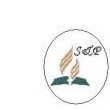"NARCO ANALYSIS TEST"
 ESTHERPRIYA
(Querist) 31 July 2008
This query is : Resolved
ESTHERPRIYA
(Querist) 31 July 2008
This query is : Resolved
What is your view regarding the conduct of Narco-Analysis Test and its constitutionally validity? Is every body who are connected with a case can be forced to under go such a test? All the high courts have unanimously upheld the constiutional validity of the NARCO-ANALYSIS test and its relevancy of Indian Evidence Act.
Can you post your views?
 deepak kumar
(Expert) 31 July 2008
deepak kumar
(Expert) 31 July 2008
Narco Analysis is an investigative tool which is done by the investigating agencies for the purposes of investigation.
the basic premise of our criminal law that the accused is entitled not to say a word and keep quiet or more specifically not to give any statement incriminating himself is flouted by the narco analysis test as by this due to administration of drugs a person loses his ability to reason and answers the questions put forward to him and he may also implicate himself.
as per my view the admissions made during narco analysis will not be admissible unless and until some new fact is discovered from the statement i.e section 27 of the Evidence Act
www.advocatesdiary.blogspot.com
 K.C.Suresh
(Expert) 01 August 2008
K.C.Suresh
(Expert) 01 August 2008
Dear Padmapriya,
I have already forwarded an article to LCI for publication and it is under process. Hope you can read it at the earliest. But to minimize your curiosity in the matter the folloing may be noted:
In India, narco-analysis was first used in 2002 in the Godhra carnage case. It was also in the news after the famous Arun Bhatt kidnapping case in Gujarat wherein the accused had appeared before NHRC and the Supreme Court of India against undergoing the narco-analysis. It was again in the news in the Telgi stamp paper scam when Abdul Karim Telgi was taken to the test in December 2003.
In 2004, the Bombay High Court ruled in the multi-crore-rupee fake stamp paper case that subjecting an accused to certain tests like narcoanalysis does not violate the fundamental right against self-incrimination. Article 20(3) of the Constitution guarantees this: "No person accused of any offence shall be compelled to be a witness against himself." Statements made under narco analysis are not admissible in evidence.
In a 2006 judgment (Dinesh Dalmia v State), the Madras High Court held that subjecting an accused to narco analysis is not tantamount to testimony by compulsion. The court said about the accused: "he may be taken to the laboratory for such tests against his will, but the revelation during such tests is quite voluntary."
In January 24th, 2008, a bench of Chief Justice K.G. Balakrishnan reserved its ruling after hearing arguments for three days from various parties, including Solicitor General Goolam E. Vahanvati and senior advocate Dushyant Dave, appointed by the bench as amicus curiae to assist the court in the case.
Telgi and his accomplices are facing probe by various states' police and other investigative agencies for their alleged criminal acts.
These accused people have challenged the legality of the use polygraph, brain mapping and narco-analysis by the investigative agencies to probe the crime.
The Bombay High Court recently in a significant verdict in the case of, Ramchandra Reddy and Ors. v. State of Maharashtra, upheld the legality of the use of P300 or Brain finger-printing, lie-detector test and the use of truth serum or narco analysis. The court upheld a special court order given by the special court in Pune as mentioned above, allowing the SIT to conduct scientific tests on the accused in the fake stamp paper scam including the main accused, Abdul Karim Telgi. The verdict also said that the evidence procured under the effect of truth serum is also admissible. In the course of the judgment, a distinction was drawn between “statement” (made before a police officer) and “testimony” (made under oath in court). The Judges, Justice Palshikar and Justice Kakade, said that the lie-detector and the brain mapping tests did not involve any “statement” being made and the statement made under narco analysis was not admissible in evidence during trial. The judgment also held that these tests involve “minimal bodily harm”.
A court in Kerala recently pronounced that no court order is required to do a narco analysis, Disposing of a petition filed by the CBI seeking permission of the court, the magistrate said that filing this type of a plea would only delay the investigation. The court said nobody could stand in the way of the investigating agency conducting tests recognized as effective investigation tools. When the technicalities of the test itself are not clear and uniform, it becomes difficult to accept the stand taken by the court.In India, narco-analysis was first used in 2002 in the Godhra carnage case. It was also in the news after the famous Arun Bhatt kidnapping case in Gujarat wherein the accused had appeared before NHRC and the Supreme Court of India against undergoing the narco-analysis. It was again in the news in the Telgi stamp paper scam when Abdul Karim Telgi was taken to the test in December 2003.
In 2004, the Bombay High Court ruled in the multi-crore-rupee fake stamp paper case t
 arunprakaash.m.
(Expert) 02 August 2008
arunprakaash.m.
(Expert) 02 August 2008
narcoanalysis test is not considered as a substantive evidence it used for corroboratove evidence only.
 ESTHERPRIYA
(Querist) 03 August 2008
ESTHERPRIYA
(Querist) 03 August 2008
Thankyou experts for answering my query.
 K.C.Suresh
(Expert) 01 August 2008
K.C.Suresh
(Expert) 01 August 2008
